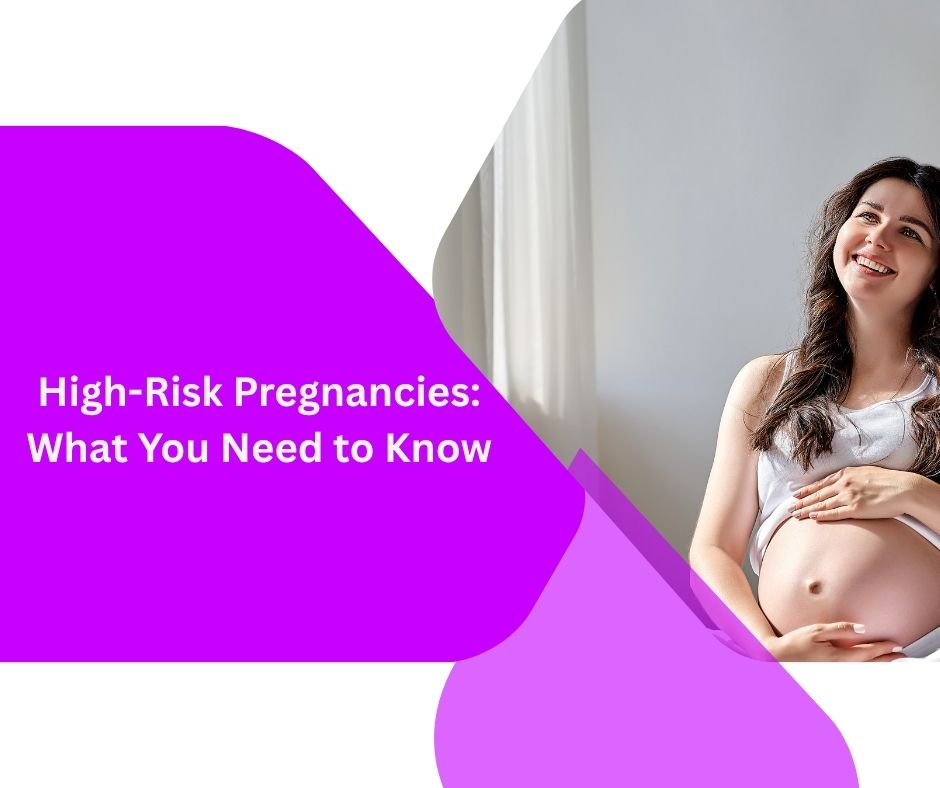
Pregnancy is an exciting journey, but in some cases, it may come with higher risks that require special medical attention. A high-risk pregnancy means there are potential complications that could affect the health of the mother, baby, or both. With proper monitoring, timely interventions, and expert care, most women with high-risk pregnancies can still experience healthy outcomes. Understanding the causes, symptoms, and management of high-risk pregnancies is essential for ensuring a safe delivery.
What Is a High-Risk Pregnancy?
A high-risk pregnancy is one where the chances of complications are greater than in a typical pregnancy. These risks may arise from existing medical conditions, issues that develop during pregnancy, or lifestyle factors. Women with high-risk pregnancies require more frequent checkups, specialized testing, and close monitoring by an experienced obstetrician to manage potential challenges effectively.
Common Causes of High-Risk Pregnancy
Several factors can contribute to a pregnancy being classified as high-risk. These include:
- Maternal age: Women under 18 or over 35 have a higher risk of complications such as preeclampsia, gestational diabetes, and chromosomal abnormalities.
- Pre-existing medical conditions: Conditions such as diabetes, hypertension, thyroid disorders, or heart disease can complicate pregnancy.
- Multiple pregnancies: Carrying twins, triplets, or more increases the risk of premature birth and other complications.
- History of complications: Previous miscarriages, preterm births, or cesarean deliveries may indicate higher risk in future pregnancies.
- Obesity or underweight: Extreme body weight can lead to gestational diabetes, high blood pressure, or growth restrictions in the baby.
- Lifestyle factors: Smoking, alcohol consumption, and drug use increase the likelihood of pregnancy complications.
Signs and Symptoms That Require Immediate Attention
During pregnancy, it’s important to stay aware of symptoms that could signal a problem. Some warning signs include:
- Severe or persistent headaches
- Blurred vision or sudden swelling in the hands, face, or feet
- Heavy vaginal bleeding or fluid leakage
- Severe abdominal pain or cramping
- Decreased fetal movements
- Sudden shortness of breath or chest pain
If any of these symptoms occur, it’s crucial to contact your healthcare provider immediately. Early intervention can help prevent serious complications for both mother and baby.
How High-Risk Pregnancies Are Managed
Managing a high-risk pregnancy requires a personalized approach tailored to the individual’s health needs. The process often includes:
1. Frequent Monitoring
Women with high-risk pregnancies need regular checkups, ultrasounds, and specialized tests to monitor fetal growth and maternal health. This allows early detection of any developing complications.
2. Medication and Treatment Plans
Depending on the condition, doctors may prescribe medications to manage blood pressure, blood sugar levels, or other health issues. Preventive measures such as low-dose aspirin may also be recommended for preeclampsia prevention.
3. Nutritional and Lifestyle Guidance
Proper diet, exercise, and rest are essential. Your doctor may refer you to a nutritionist for a tailored meal plan and guide you on safe physical activity.
4. Delivery Planning
In some cases, early or planned delivery may be necessary to ensure safety. The healthcare team will decide the best mode and timing of delivery based on maternal and fetal conditions.
Emotional Support During High-Risk Pregnancy
High-risk pregnancies can be emotionally challenging, causing anxiety and stress. Support from family, friends, and counseling professionals can make a significant difference. Joining prenatal support groups and discussing concerns with your doctor also helps reduce fear and uncertainty.
Conclusion
While a high-risk pregnancy may sound intimidating, with expert medical care, proper monitoring, and healthy lifestyle choices, most women can achieve a successful outcome. Early diagnosis and consistent care throughout pregnancy are key to minimizing risks and ensuring both mother and baby remain healthy.
Dr. Preeti Tandon provides the best care for high-risk pregnancies, offering advanced monitoring, personalized treatment plans, and compassionate support to ensure the safest possible journey for both mother and child.



